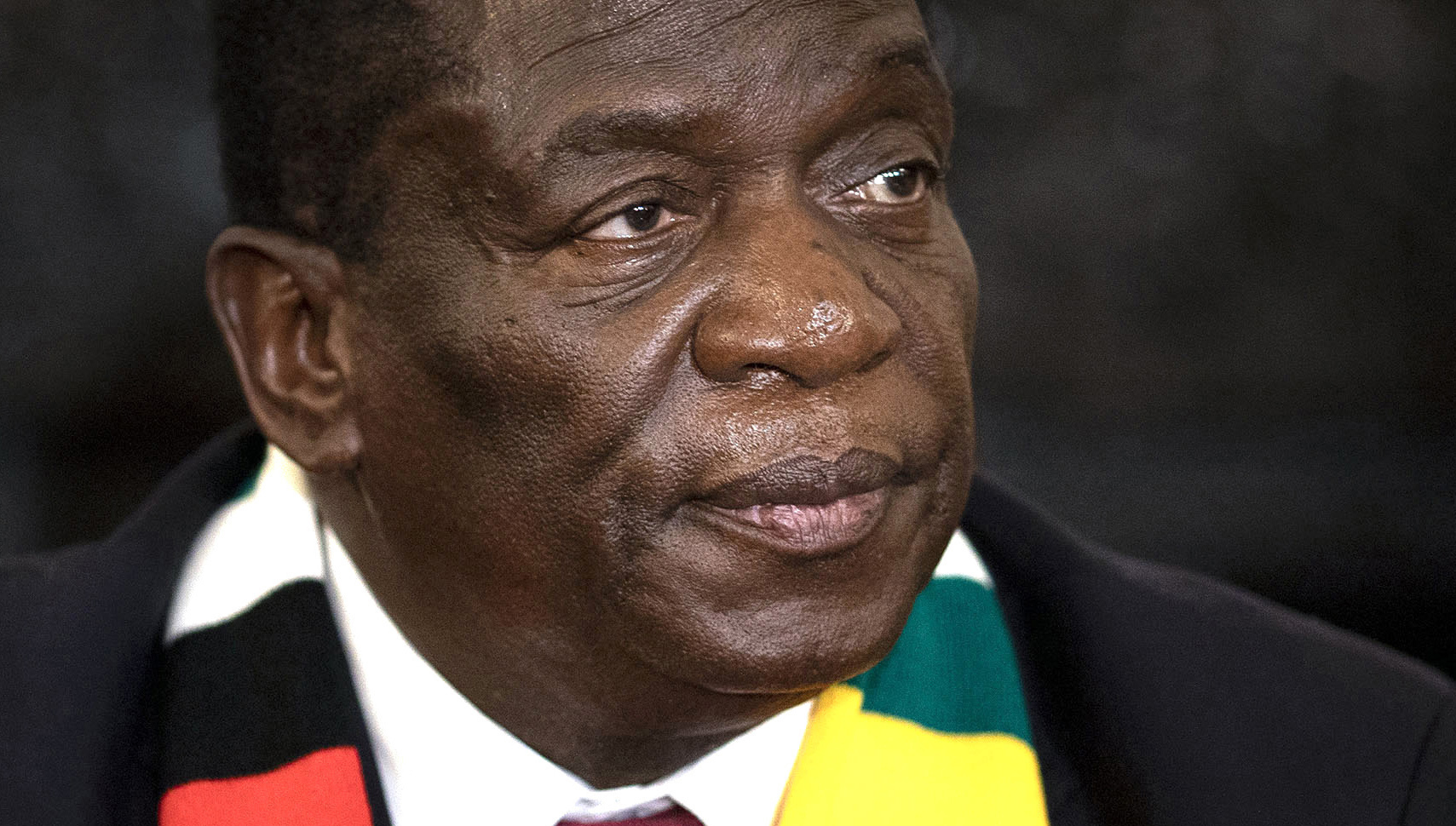The background to the trial tells a different story. Rather than being “illegal occupiers” of state land, what is unfolding is a land grab by the Zimbabwean government against black farmers and a prominent human rights activist — in a style similar to the 1999 invasions of white-owned farms.
Background
On 18 December 2020, the Ministry of Lands, Agriculture, Water and Rural Resettlement gazetted Esidakeni farm — owned by the executive director of the Open Society Initiative for Southern Africa (Osisa) and human rights lawyer Siphosami Malunga and his partners Zephaniah Dlamini and Charles Moyo.
Dlamini is a respected scientist and lecturer at the National University of Science and Technology and Moyo is a businessman based in Bulawayo.
The three men bought Esidakeni farm from Keshelmer (Pvt) Ltd in 2017.
Their problems began in 2019 when their childhood friend, Gatsha Mazithulela, asked if he could join them in the venture and become the fourth partner. They turned him down.
At the time, Mazithulela was the Pro Vice Chancellor of the National University of Science and Technology, the same institution where Dlamini lectures.
The three men claim Mazithulela warned them that if they were not careful, the state was going to take the farm away from them.
In January 2020, Mazithulela was appointed deputy director-general of the notorious Central Intelligence Organisation (CIO). The CIO is known for spying on, abducting, torturing and even “disappearing” dissenters and opposition members.
It came as a shock to many that a university academic was appointed to a top position in this much-feared organisation. This sparked debate on whether he had “always” been a spy.
According to their papers filed at the High Court in Bulawayo, the trio say that after his appointment, Mazithulela approached them again, begging to be allowed to join the partnership.
Again, they said no.
The begging quickly turned to coercion and threats. As the CIO’s second-in-command, Mazithulela now had the power to punish his “friends” for rejecting him.
It was not a surprise when, in December 2020, Esidakeni farm was acquired by the government of Zimbabwe, which declared it state land. This marked the beginning of the persecution of Malunga, Dlamini and Moyo.
After the acquisition of the farm, according to the trio’s court papers, Mazithulela advised Moyo and Dlamini to remove Malunga as a director and replace him with himself (Mazithulela).
He allegedly told them that Malunga was too vocal against the state and that as the director of the Open Society Initiative for Southern Africa, he supported regime change. For these reasons, the government was going to take the farm from them.
Mazithulela reportedly told them that if they removed Malunga and partnered with him, he would offer them protection. Dlamini and Moyo refused to play Judas and again turned Mazithulela down.
From that point on, Malunga, Dlamini and Moyo have been fighting to get their farm back.
The fightback
On 14 March 2021, Siphosami Malunga posted on his Twitter account:
“I am told that a very senior ZANU-PF official (I will name him soon) visited our farm in Nyamandlovu unannounced and asked questions about when it will be parcelled out and how many boreholes we have. We are ready to fight to defend it. We own it as Blacks. Our fathers fought for us too.”
Several people have since invaded Esidakeni farm, purporting to have been given offer letters by the Minister of Lands, Agriculture, Water and Rural Resettlement, Dr Anxious Jongwe Masuka.
A certain Dumisani Madzivanyathi, also a lecturer at the National University of Science and Technology, invaded the farm and went on the rampage, destroying Malunga, Dlamini and Moyo’s crops.
The three took him to court and were granted an order to evict Madzivanyathi from the farm.
The court also awarded them US$339,660 — against Madzivanyathi — for the damage he caused to their tomato crop.
Malunga also posted on Twitter that he and his partners intended recovering the losses for their onion and butternut crops — allegedly stolen by Zanu-PF’s secretary of administration, Dr Obert Mpofu.
It turned out the senior Zanu-PF official, alluded to by Malunga in his March 2021 tweet, was none other than Obert Mpofu, a former ruling party minister allegedly involved in a diamond scandal and several land grab scandals.
In the early 1980s, Mpofu was convicted of stealing a door from the Cold Storage Commission. Despite his criminal history, Zanu-PF welcomed him into the party with open arms.

Mpofu claimed in a recent interview with the Chronicle newspaper that President Emmerson Mnangagwa had ordered the Minister of Lands to give Mpofu another farm.
It’s unclear whether Mnangagwa instructed that he be given Esidakeni farm in particular, but Mpofu emerged with an offer letter for the farm.
He went on to occupy Esidakeni and posted armed guards at the gates to prevent the rightful owners from entering the property.
At the time of the illegal occupation, Malunga, Dlamini and Moyo had just begun harvesting their 800 tonnes of onions, 200 tonnes of butternuts and had 75,000 cabbages almost ready to harvest.
Obert Mpofu, his wife Sikhanyisiwe Mpofu and their company, Mswelangubo farm Ltd, allegedly harvested and took all of that produce.
Court proceedings
The trio applied to the high court for a nullification of the acquisition on the grounds that it was unconstitutional. The matter is yet to be decided.
They applied separately for the eviction of Obert Mpofu, which the court granted.
Mpofu appealed against the ruling, but lost when the Supreme Court granted Malunga, Dlamini and Moyo a spoliation order which said the occupation of Esidakeni farm by Mpofu was unlawful.
The Supreme Court chastised Mpofu for taking the law into his own hands and told him he had no right to resort to “self-help”.
Mpofu ignored the order.
Instead, to pre-empt eviction, he moved his belongings, relatives and staff off the farm, only to move them back in after a few days.
Visit Daily Maverick’s home page for more news, analysis and investigations
On 29 October 2022, the Sheriff of the High Court finally evicted Obert Mpofu from Esidakeni farm with the help of the police.
This development was celebrated by Zimbabweans who had been closely following the persecution of Malunga, Dlamini and Moyo.
Unfortunately, this isn’t the end.
After Mpofu lost the Supreme Court case, the three owners of Esidakeni were arrested and charged with unlawfully occupying the farm they bought in 2017.
In papers filed at the Tsholotsho Magistrates’ Court, their lawyer, Josephat Tshuma, a human rights lawyer with Webb, Low and Barry law firm, applied for the case to be dismissed on the grounds that no crime had been committed, according to the law.
Tshuma explained that for there to be an offence, the law says occupiers must have been given three months’ written notice by the Minister of Lands, Agriculture, Water and Rural Resettlement to leave the farm.
And only if the farm owners defied such a notice, could they be charged with illegally occupying state land. The trio had never received such a notice, making the charge defective and baseless, according to Tshuma.
Abuse of power
In a spectacular display of abuse of power and interference in judicial processes, Zimbabwe’s Deputy Prosecutor General, Michael Reza, left his office in Harare and drove more than 600km to rural Tsholotsho to take over as lead prosecutor in the case against Malunga, Dlamini and Moyo.
Reza is known for prosecuting and persecuting opposition members and activists. He is implicated in the jailing of several political prisoners such as Makomborero Haruzivishe, Joanna Mamombe, Cecilia Chimbiri, Netsai Marova and many others.
For Reza to drive all the way to Tsholotsho Magistrates’ Court and replace the prosecutors who were already handling the case is nothing but blatant interference.
It also clearly demonstrates the political nature of the prosecution and is consistent with Mazithulela’s alleged threat to Dlamini and Moyo that if they did not remove Malunga from the partnership and replace him with Mazithulela, the State would take the farm. This was because Malunga, in his role as executive director of Osisa, was a “regime change agent”.
It was no surprise that, on 25 October, the Tsholotsho magistrate, with Michael Reza as prosecutor, denied the trio’s application to dismiss the case and set it down for trial on 1 November.
When the government of Zimbabwe started grabbing land from former white farmers, many in the country celebrated, thinking an injustice was being righted.
Little did we know that the same laws would one day be abused to grab land from black people who dare to speak out about human rights abuses in Zimbabwe. DM/MC
Thandekile Moyo is a human rights activist and writer in Zimbabwe.
![]()
Source link











